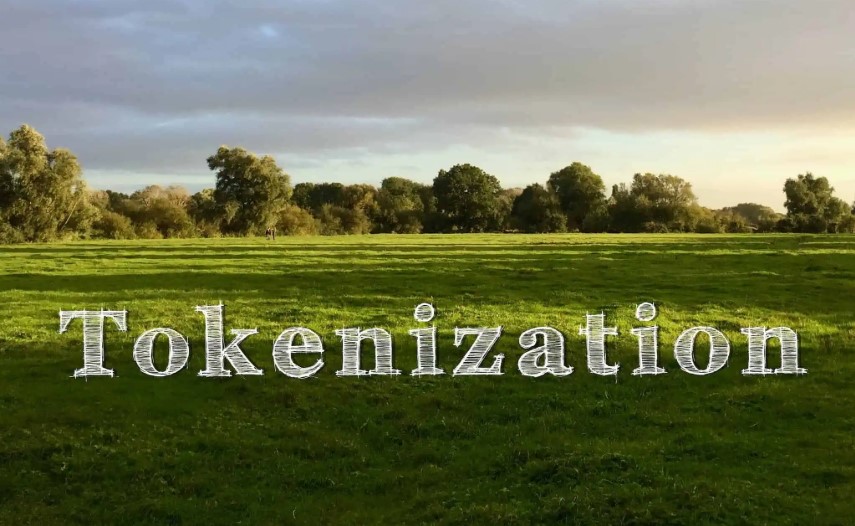Polymath is reaping the rewards from years of careful preparation and forethought. Now, as asset tokenization prepares for takeoff, Vince Kadar’s company is front and center.
Its origins date back to 2017-18, when Polymath became the first organization building an app on Ethereum. That app would allow parties to tokenize assets.
Kadar said early efforts included developing a working group of 25 individuals and groups to develop proper standards. Out of those efforts came Token Studio, which enables individuals to reserve, configure, and manage their security tokens and the ERC-1400 security standard.
Improving tokenization after its rough start
Looking back, Kadar still bristles at the inefficiencies of those early years, such as anyone being able to send anything to anyone’s Metamask wallet, and they couldn’t refuse it. That, and resulting auditing problems, deterred institutions from investing. Under such conditions, widespread asset tokenization would remain a pipedream.
“It wouldn’t be embraced if everyone was concerned about bad actors,” Kadar said.
Polymath set out to do something. Kadar said it is truly distributed. The 80-plus node operators around the world, as well as the validators, must be regulated entities like broker-dealers or banks.
Polymesh began in 2021. A Switzerland-based non-profit foundation governs the Layer 1. The for-profit offering is a full-service, white-label platform that allows entities to tokenize anything from whiskey to yachts to real estate.
And, unlike those early Wild West years, when dreamers surged forward, believing they’d be part of a surge forcing regulators to welcome them, Polymath took a more prudent approach.
“That’s the difference, right? We’re regulatory first,” Kadar said. “We always think, from a regulatory point of view, that what you’re doing actually needs to be compliant. It needs to be registered with a regulated entity.”
That process is non-stop. Polymath is in constant contact with regulators and partners. It is part of several sandbox environments that do the same.
“The way to tread carefully is to always ensure that they’re aware of what you’re doing,” Kadar advised. “So, any customer that uses our platform, anytime that we do anything, it always has to be registered first.”
Why real estate is perfect for tokenization
Kadar estimates that 60% of Polymath’s pipeline comes from real estate, which he said is a highly illiquid asset. Tokenizing commercial, multi-tenant, or even investment properties like Airbnbs allows more investors to participate while providing unique capital-raising opportunities.
“Anywhere you need capital,” Kadar said. “It allows businesses to focus more on expansion and product and service development.”
In March, the Polymesh Association and Canadian firm Ocree Capital partnered to launch a blockchain-based, real estate tokenization platform with a $51.9 million Winnipeg apartment block as its initial asset. Kadar said it had to be registered with the Ontario Securities Commission and be underwritten by a law firm. In the United States, FINRA and the SEC must give the thumbs-up.
Like many innovations that become indispensable, Kadar said, folks can participate in tokenization without any knowledge of cryptocurrency. Everything happens on a normal-looking exchange.
“We created a very simple application, where if you want to issue a security token, it’s fairly simple to do. Load up your assets, create the user experience for your investors, and off you go. You can collaborate and invite your lawyer, accountant and CFO into a workspace where everybody has a task they perform. Add the regulator, so that they have oversight.”
Issuers are only limited by their creativity. They can offer security tokens for the penthouse and different floors at various prices. Provide dividends while promoting that you deal with all the paperwork.
“In the case of the Winnipeg property, you can become a fractional owner,” Kadar said. “You get a quarterly or annual check. I call that democratizing real estate investing, because such units were typically only available through limited partnerships. Now, the everyday person can partake in the venture.”
Tokenization is still maturing
Kadar said most regions are in the first inning of tokenization, though most are seeing interest from real estate firms. Scoring could come soon, especially with institutions like BlackRock experimenting with the process. Canada, the USA, and especially the United Arab Emirates, are most welcoming.
Now it’s time for the industry to embrace tokenization. Broker-dealers can easily blend it into their offerings.
“We’re only looking at the private markets right now, because we think that’s the area that hasn’t been disrupted; they don’t have a coordinated back office,” Kadar said. “The public markets will get to that point as well.”
Source: crowdfundinsider

